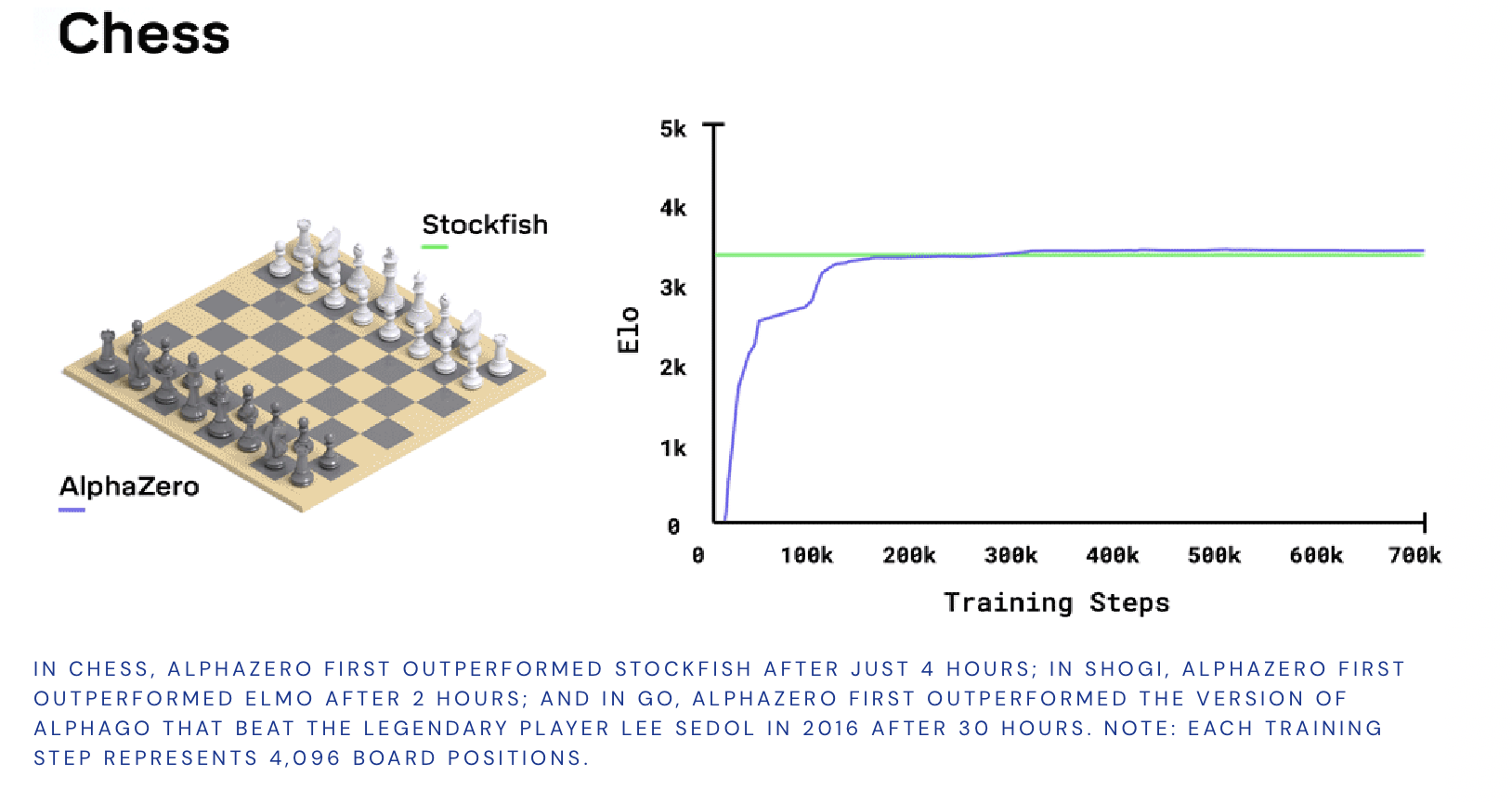Reading this blog post about AlphaZero: https://deepmind.com/blog/article/alphazero-shedding-new-light-grand-games-chess-shogi-and-go
It uses language such as "the amount of training the network needs" and "fully trained" to describe how long they had the machine play against itself before they stopped training. They state training times such as 9 hours, 12 hours, and thirteen days for chess, shogi, and Go respectively. Why is there a point at which the training "completes?" They show plots of AlphaZero's performance on the Y axis (its Elo rating) as a function of the number of training steps. Indeed, the performance seems to level out as the number of training steps increases beyond a certain point. Here's a picture from that site of the chess performance vs training steps:
Notice how sharply the Elo rating levels off as a function of training steps.
- First: am I interpreting this correctly? That is, is there an asymptotic limit to improvement on performance as training sessions tend to infinity?
- If I am interpreting this correctly, why is there a limit? Wouldn't more training mean better refinement and improvement upon its play? It makes sense to me that the millionth training step may yield less improvement than the very first one, but I wouldn't expect an asymptotic limit. That is, maybe it gets to about 3500 Elo points in the first 200k training steps over the course of the first 10 hours or so of playing ches. If it continued running for the rest of the year, I'd expect it to rise significantly above that. Maybe double its Elo rating? Is that intuition wrong? If so, what are the factors that limit its training progress beyond the first 10 hours of play?
Thanks!

